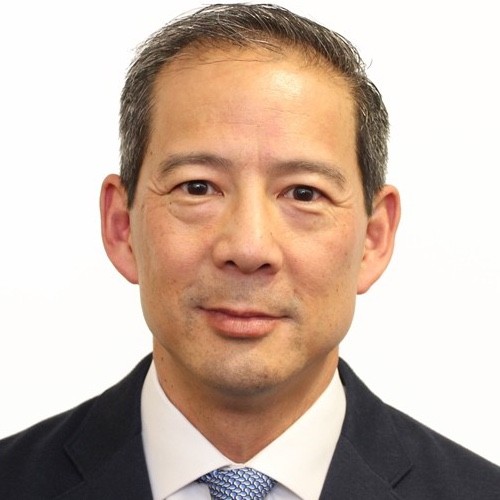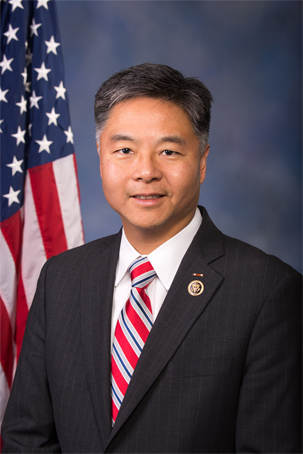A new survey has found that around 8 out of 10 Asian Americans are discriminated against in the US.
Additionally 77% do not feel respected; compared to 86% of Black Americans, 77% of Hispanic/Latino Americans and 31% of White Americans, according to the STAATUS Index from Asian Americans to Unite for Change (LAAUNCH). Its inaugural STAATUS Index (Social Tracking of Asian Americans in the US) is a comprehensive assessment of Americans’ attitudes towards Asian Americans; and the first study in 20 years to examine stereotypes and prejudices that have affected Asian Americans for generations.
The Index findings also reveal that despite the increase in news coverage of recent attacks, 37% of White Americans, 46% of Republicans and 22% of Democrats say they aren’t aware of the increase in assaults, hate crimes or other forms of racism against Asian Americans over the past year. Yet, worryingly, 24% of White Americans, 35% of Republicans and 12% of Democrats do not believe that anti-Asian American racism is a problem that should be addressed.
TOXIC STEREOTYPING
Survey respondents admitted that they are most comfortable with an Asian American as a doctor or nurse, friend or co-worker; but less comfortable with an Asian American as a boss or president of the United States. According to the findings, classic stereotypes persist as toxic myths. Some of these include:
- MODEL MINORITY: Most common adjectives to describe Asian Americans – “smart,” “intelligent” and “hard-working” – have remained consistent for over 50 years.
- PERPETUAL FOREIGNER: 20% of respondents say Asian Americans are more loyal to their countries of origin than to the US.
- YELLOW PERIL: 26% of Republicans, 6% of Democrats and 24% of people over the age of 65 believe “China Virus” is an appropriate term for Covid-19.

Image credit: Pexels
‘INVISIBLE’ COMMUNITY
Asian Americans also remain largely invisible, according to the report. During a year when well-known Asian Americans – such as Kamala Harris, Sanjay Gupta, Tiger Woods, Andrew Yang –,were featured in the media, many respondents still had difficulty naming a prominent, contemporary Asian American. Top answers in order were “None/I Don’t Know,” “Jackie Chan” and “Bruce Lee”; and the top female was “Lucy Liu.”
In movies and on TV, many see Asian American actors six times more often in supporting or background roles compared to lead roles. Roles remain stereotypical for both male and female actors, such as martial arts expert, doctor, gangster, sex worker or maid.
“As a business with roots in the Asian American community, these findings are not surprising to us,” said Dominic Ng, Chairman and CEO of East West Bank, which minded the report. “What’s important is that now we have data. That is crucial to create greater awareness, educate stakeholders and inform policymaking moving forward.”
HATE CRIMES & SCAPEGOATING
In the first quarter of 2021 alone, hate crimes against the Asian American community have risen nearly 164%. “As members of this community, we are outraged to see these senseless acts of violence. We know from history that stereotypes lead to scapegoating and violence during times of crisis; but there has been a lack of national research on stereotypes of Asian Americans over the past two decades,” stated Norman Chen, CEO and Co-founder of LAAUNCH. “Inspired by the ADL’s research, we developed the STAATUS Index in collaboration with academics from University of Massachusetts, Boston; University of California, Los Angeles and Princeton University; to not only understand the root causes of racism and violence towards Asian Americans, but also to help shape American attitudes toward our community moving forward.”

While this is the first year of the report, LAAUNCH plans to release the survey annually to track changes in American perception; and to inform new programmes to address the underlying causes for racism and under-representation for Asian Americans. It is specifically calling for:
- More education on Asian American history and current issues affecting the community.
- Increased Asian American representation in our society, including politics, business and media.
- Greater understanding of how systemic racism impacts all Americans.
ADDRESSING RACISM’S ROOT CAUSE
The non-profit organisation aims to address the root causes of racism and violence towards Asian Americans that have been exacerbated by the pandemic. LAAUNCH is working closely with partner organisations such as the Anti-Defamation League (ADL) and Gold House, amongst others, to evaluate the data; raise awareness; garner solidarity across underrepresented communities; and develop actionable programming that tackles bias against Asian Americans inthe United States.
“I applaud LAAUNCH for their objective, non-partisan report that surveyed attitudes towards Asian Americans and Pacific Islanders,” commented California Congressman Ted Lieu. “This study adds to the growing body of evidence about how insidious and dangerous anti-Asian American sentiment can be in this country. We’ve seen a growing number of hate crimes and hate incidents perpetrated against the AAPI community since the beginning of the pandemic. We can have an academic, theoretical discussion about whether systematic racism exists; but the actual data is clear. 8 out of 10 Asian Americans report being discriminated against.”

Lieu agrees that many Americans of Asian descent simply do not feel safe right now. “We need to do more to address this issue in government and in society at large. I’m pleased the Senate passed the Covid-19 Hate Crimes Act; and we will pass it in the House this month,” stated Lieu. “We also need to change the very restrictive standard in the federal hate crime law by passing my bill; the Stop Hate Crimes Act. I look forward to continuing to work with groups like LAAUNCH to combat discrimination and racism against the AAPI community.”
Click here for more information about the report, during Asian American and Pacific Islander Heritage Month. Check out the article on why corporate leaders need to do more to #StopAsianHate here.







































